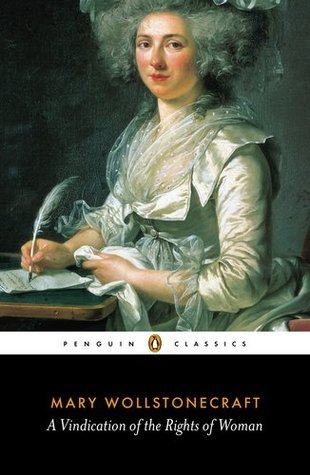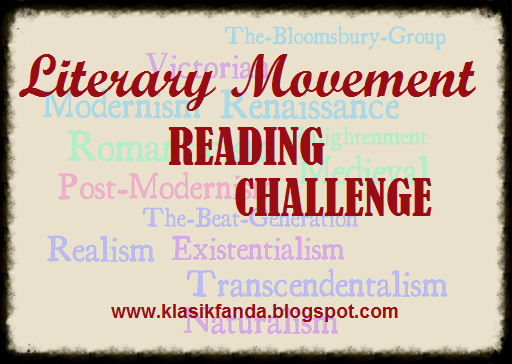Literature

If you were a woman living during the 19th century, there were very few options available other than get married at a young age, popping out babies at a steady rate, taking care of the home and raising children. Some feminist critics would argue that not much has really changed since then because gender inequality still thrives today. I am not here to get into the polemics of gender ideologies, since endless volumes of research and critical essays have already been expounded on this subject. I'd much rather leave the debate to the historians and sociologists. My concern is simply with the literature itself, to to see how different writers of the period approached issues of gender. Additionally, I find it fascinating that only male writers of the Romantic period receive the most attention whereas female writers of the time are forgotten or ignored completely. The "big six" are all male: Wordsworth, Coleridge, Keats, Byron, Blake and Shelley. Why is it that Mary Wollstonecraft, Hannah Moore, Anna Laetitia Barbauld or Charlotte Smith are rarely recognized for their contributions to this literary movement? Once again, gender politics. Therefore, I intend to take the opportunity to focus on some of these female writers who have been overshadowed by their male-counterparts.
One of the first and most influential pieces of feminist writing is Mary Wollstonecraft's The Vindications of the Rights of Women. If the last name sounds familiar it is because Mary Wollstonecraft was the mother of Mary Shelley who would go on to write Frankenstein. Wollstonecraft's lengthy treatise is her sophisticated and philosophical way of giving the middle finger to male hegemony. She calls for radical change by rejecting patriarchal interpretations of feminine virtue for being bias, inaccurate and plainly offensive. She champions female equality, passionately supports female independence and is keen to point out that men are either tyrants or sexual deviants who do not have women's best interests at heart. She provides a long and detailed account of the "history of women," highlighting the fallacy of female gender roles that have been promoted by a predominant male society. The first three chapters form the crux of the essay where she makes her main arguments that will be emphasized throughout the rest of the work: 1) Women must be educated. 2) Reason leads to virtue. 3) Marriage and vanity only lead to oppression. 4) Principles of the French Revolution should be applied to women. 5)Women must be restored to the status of human beings instead of being treated like inferior creatures by men. She is pretty harsh towards the male sex but considering the time period in which she lived, do you really blame her?
Mary Wollstonecraft deserves major props for writing such a brave and radical feminist work at a time when women possessed no rights or personal freedoms, their lives dictated entirely by men. When it comes to philosophy or critical essays, my experience is limited and what I have read has been unpleasant to say the least. I find reading this type of literature to be a real chore, dull or downright perplexing (I'm looking at you Mr. Immanuel Kant). Even though Wollstonecraft is prone to didacticism, digressions and extraneous details, she more than makes up for it by writing in an engaging style that is accessible. For those like myself who find a lot of philosophic writing to be convoluted and impenetrable, Wollstonecraft is a breath of fresh air.

- Was Jane Austen A Feminist?
Jane Austen has the reputation of only writing about young women whose only interest in life was marriage and is often derided because of it. However, this is not true. She wrote about the relationships between men and women, the problems of women in...
- Romantic Writing
The Romantic Age (1789-1832) ? Romanticism as a period and a concept: ? W. Wordsworth and S. Coleridge published a book of poems ?Lyrical Ballads) 1789. That is the beginning of the Romantic Age. The end of the romantic age is with the death of Sir Walter...
- Deal Me In Challenge: Oh! He's Charming! By Dorothy Parker
Card Drawn: 7 of Spades. Penguin Classic editions tend to have some of the most well-designed and evocative covers around. Dorothy Parker's Complete Stories is one of them--a cartoon drawing of a woman peeking out of a men's washroom. Simple,...
- Neglected Review #6: Northanger Abbey By Jane Austen
?There is nothing I would not do for those who are really my friends. I have no notion of loving people by halves, it is not my nature.? It may have been over two years since I last read Northanger Abbey, in which several of the plot details are a...
- The Challenges Of Being A Writer - Razinat (interview)
Razinat Talatu Mohammed?s collection of short stories, A Love Like a Woman?s and Other Stories, published to critical acclaim in 2006, heralds a triumphant entry into the Nigerian literary scene. Indeed, the book demonstrates Razinat?s acuity of vision,...
Literature
The Vindications of the Rights of Women by Mary Wollstonecraft (1792)

?I do not wish them [women] to have power over men; but over themselves.?
If you were a woman living during the 19th century, there were very few options available other than get married at a young age, popping out babies at a steady rate, taking care of the home and raising children. Some feminist critics would argue that not much has really changed since then because gender inequality still thrives today. I am not here to get into the polemics of gender ideologies, since endless volumes of research and critical essays have already been expounded on this subject. I'd much rather leave the debate to the historians and sociologists. My concern is simply with the literature itself, to to see how different writers of the period approached issues of gender. Additionally, I find it fascinating that only male writers of the Romantic period receive the most attention whereas female writers of the time are forgotten or ignored completely. The "big six" are all male: Wordsworth, Coleridge, Keats, Byron, Blake and Shelley. Why is it that Mary Wollstonecraft, Hannah Moore, Anna Laetitia Barbauld or Charlotte Smith are rarely recognized for their contributions to this literary movement? Once again, gender politics. Therefore, I intend to take the opportunity to focus on some of these female writers who have been overshadowed by their male-counterparts.
One of the first and most influential pieces of feminist writing is Mary Wollstonecraft's The Vindications of the Rights of Women. If the last name sounds familiar it is because Mary Wollstonecraft was the mother of Mary Shelley who would go on to write Frankenstein. Wollstonecraft's lengthy treatise is her sophisticated and philosophical way of giving the middle finger to male hegemony. She calls for radical change by rejecting patriarchal interpretations of feminine virtue for being bias, inaccurate and plainly offensive. She champions female equality, passionately supports female independence and is keen to point out that men are either tyrants or sexual deviants who do not have women's best interests at heart. She provides a long and detailed account of the "history of women," highlighting the fallacy of female gender roles that have been promoted by a predominant male society. The first three chapters form the crux of the essay where she makes her main arguments that will be emphasized throughout the rest of the work: 1) Women must be educated. 2) Reason leads to virtue. 3) Marriage and vanity only lead to oppression. 4) Principles of the French Revolution should be applied to women. 5)Women must be restored to the status of human beings instead of being treated like inferior creatures by men. She is pretty harsh towards the male sex but considering the time period in which she lived, do you really blame her?
Mary Wollstonecraft deserves major props for writing such a brave and radical feminist work at a time when women possessed no rights or personal freedoms, their lives dictated entirely by men. When it comes to philosophy or critical essays, my experience is limited and what I have read has been unpleasant to say the least. I find reading this type of literature to be a real chore, dull or downright perplexing (I'm looking at you Mr. Immanuel Kant). Even though Wollstonecraft is prone to didacticism, digressions and extraneous details, she more than makes up for it by writing in an engaging style that is accessible. For those like myself who find a lot of philosophic writing to be convoluted and impenetrable, Wollstonecraft is a breath of fresh air.

- Was Jane Austen A Feminist?
Jane Austen has the reputation of only writing about young women whose only interest in life was marriage and is often derided because of it. However, this is not true. She wrote about the relationships between men and women, the problems of women in...
- Romantic Writing
The Romantic Age (1789-1832) ? Romanticism as a period and a concept: ? W. Wordsworth and S. Coleridge published a book of poems ?Lyrical Ballads) 1789. That is the beginning of the Romantic Age. The end of the romantic age is with the death of Sir Walter...
- Deal Me In Challenge: Oh! He's Charming! By Dorothy Parker
Card Drawn: 7 of Spades. Penguin Classic editions tend to have some of the most well-designed and evocative covers around. Dorothy Parker's Complete Stories is one of them--a cartoon drawing of a woman peeking out of a men's washroom. Simple,...
- Neglected Review #6: Northanger Abbey By Jane Austen
?There is nothing I would not do for those who are really my friends. I have no notion of loving people by halves, it is not my nature.? It may have been over two years since I last read Northanger Abbey, in which several of the plot details are a...
- The Challenges Of Being A Writer - Razinat (interview)
Razinat Talatu Mohammed?s collection of short stories, A Love Like a Woman?s and Other Stories, published to critical acclaim in 2006, heralds a triumphant entry into the Nigerian literary scene. Indeed, the book demonstrates Razinat?s acuity of vision,...
